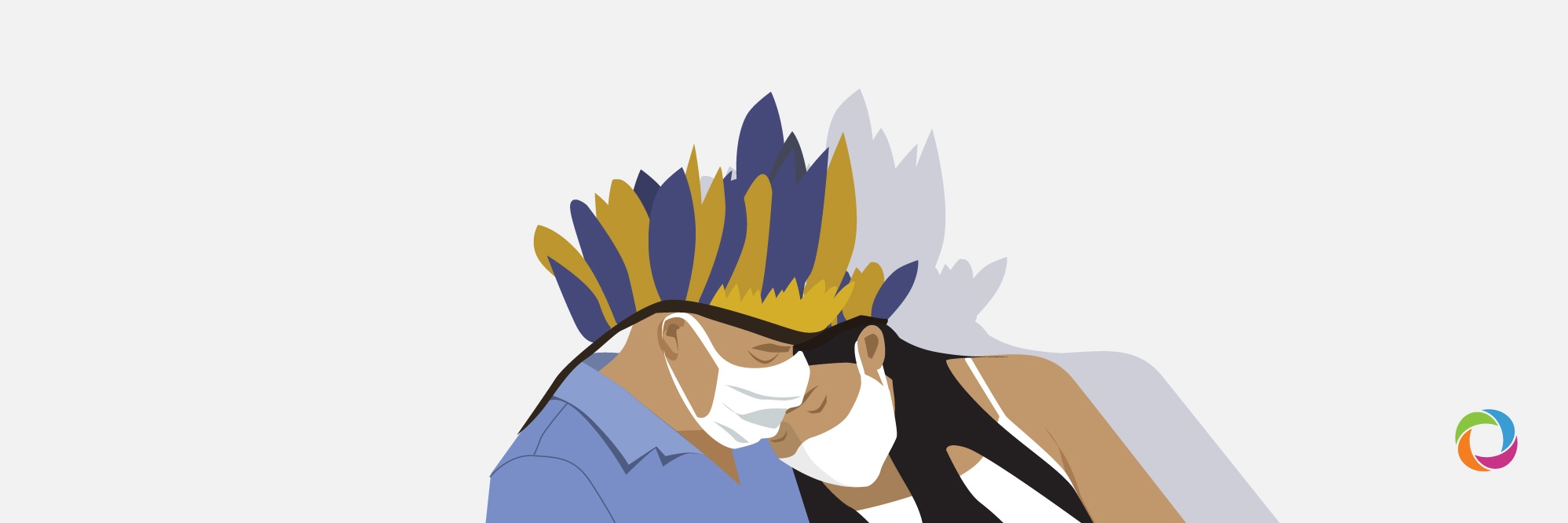The lack of decent sanitary conditions, limited access to health services, poorly equipped and overburdened hospitals within striking distance have exposed indigenous communities to the novel coronavirus and the lockdown restrictions have made the situation worse. With cases of contagion already having been reported, the further spread of the virus is imminent and could decimate entire indigenous communities.
The data regarding the levels of contagion is innacurate due to the lack of testing among these groups, according to leaders of indigenous communities in the Amazon. Jose Gregorio Diaz Mirabal, general coordinator of COICA, told DevelopmentAid that a failure to act could result in genocide for these communities.
“We are resisting because of our traditional protocols and indigenous medicine. But it is not enough. We don’t have doctors and healthcare facilities, sanitary conditions and food supplies in our communities. People are scared”.
Growing fears
The outside world has become a threat for indigenous people. While total isolation could offer a chance for survival for entire communities and their culture, lockdown restrictions have not stopped both legal and illegal intrusion into their habitats. Although they have attempted to suspend or limit any economic activity in the area, this brutal invasion continues in the absence of rigorous control by the government.
“The borders of our countries have collapsed. Illicit trade, illegal mining and extraction represent a real threat for us. We need help to prevent genocide. We ask to become part of a public strategy of intervention,” added the general coordinator of COICA.
Wildcat miners and illegal loggers increased the jump in deforestation by 51% in the Amazon region in the first quarter of this year, compared to the same period last year. Deforestation has become more widespread as every effort is channelled into addressing the pandemic. Illegal gold mining is another concern in the Amazon region with The Guardian reported that up to 20,000 illegal goldminers could be working in the area inhabited by the Yanomami tribe along Brazil’s border with Venezuela. One location suspect that one of the miners introduced the infection that killed a 15-year-old in their settlement.
Amnesty International’s representatives have expressed their specific concerns regarding the current situation in Brazil where the protection of indigenous people against illegal land seizures and logging activities have deteriorated.
“We have already communicated our concern about the continuity of these activities, despite the current pandemic, and we continue to investigate the problem in depth. In addition to Brazil, we have also spoken about the vulnerability of the indigenous communities in Ecuador that have been affected by an oil spill that occurred in the Ecuadorian Amazon which has been aggravated by the coronavirus outbreak”, declared Erika Guevara-Rosas, the Americas Director at Amnesty International.
A hotspot for the outbreak
New measures to safeguard the inhabitants of the Amazon have been announced. The Colombian and Brazilian authorities decided to strengthen the military presence at the border in the Amazon rainforest to address the growing number of infections. The Amazonas capital, Leticia (Brazil), located at the point where Colombia, Brazil and Peru come together, has registered the largest number of infected people per 100,000 inhabitants in all of Colombia. Medical services in the region have collapsed with the ability of the hospitals to cover the patients’ needs being precarious. This town has just two overwhelmed small hospitals. The San Rafael hospital relies on 30 beds and four ventilators for COVID patients while the Leticia Clinic has only 11 intermediate care beds and three respirators at their disposal. It is not only hospitals that are suffering a shortage of a capacity, but also the cemetery in Leticia, Colombian daily El Tiempo reports.
The frightening speed of the numbers of those infected in Manaus is a matter of particular concern. Home to almost 185 million indigenous people, the capital of Brazilian State of Amazonas has registered a sharp increase in the number of people who died from respiratory problems.
“What we need is an airplane full of scanners, ventilators, medicines and protective equipment”, the mayor of Manaus, Arthur Virgilio Neto, declared according to the BBC.
Mass burials have become a new reality.
History has revealed that external viruses bring devastation to indigenous settlements. There are more than 800 different indigenous groups in Latin America amounting to almost 45 million people.
“Historically, indigenous peoples have not had proper access to essential public services to guarantee their economic, social and cultural rights, including health services. These inequalities are exacerbated in the midst of a pandemic. These communities cannot rely on health services to cope properly with the virus. In addition, indigenous organizations in multiple countries have reported that health and food security programs designed to combat the virus and its impacts are not reaching indigenous communities”, explained Erika Guevara-Rosas.
Call for protection
Facing difficulties in dealing with the virus, indigenous groups from nine countries in the Amazon basin have called for help. The Amazon Emergency Fund aims to raise US$8 million over 60 days to buy food, medicine and basic protective equipment for almost three million inhabitants. Indigenous families have had to leave their settlements to supplement their subsistence. The lockdown measures prevent them accessing the items necessary to survive, but on another hand leaving expose vulnerable people to real threats.
The United Nation Permanent Forum highlighted the commitment to ensure that indigenous peoples are included in governments’ interventions. Moreover, the international community should take into consideration indigenous people’ specific needs in the coronavirus outbreak’s response as well. Despite their concerns expressed several times, they feel helpless. The Pan American Health Organization (PAHO) recommends to intensify the communication by delivering pertinent information, providing food and clean water, soap, and disinfectant, as well as other basic supplies. The actions should focus on eradicating discrimination and maintaining an ongoing epidemiological surveillance. Coronavirus care should be inclusive and the clinics accessible. The leaders of indigenous communities should get involved in any decision affecting COVID-19 measures.
Stay informed. DevelopmentAid tracks the pandemic’s extension. Subscribe to News and get access to the latest updates.

